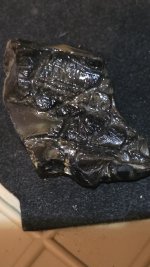S
stefen
Guest
To the Jewish people, Chanukkah, also known as the Festival of Lights, is an eight day holiday celebrating the re-dedication of the Temple in Jerusalem after it was defiled by the Seleucid Greeks. In fact, Chanukkah, is a lesser traditional holiday.
Gift-giving, typically, is not a traditional part of the holiday, however, it has been added in communities where Jews have contact with Christians, as a way of dealing with our children's jealousy of their Christian friends. In addition, it is unusual for Jews to give Chanukkah gifts to other than their own children or grandchildren. A traditional gift of the holiday is "gelt," small amounts of money.
There is no such thing as a Chanukkah Tree or holiday decorations similar to those of Christians. There are no lights. No bewiskered old men in red suits or little people crafting toys for little girls and boys. There are no Reindeers in the sky or shouting over rooftops.
Chanukkah, like Christmas, is not just the time of year to express best wishes. peace and goodwill towards our neighbors, this is something that should be practiced each day.
Lechiem. To life.
Gift-giving, typically, is not a traditional part of the holiday, however, it has been added in communities where Jews have contact with Christians, as a way of dealing with our children's jealousy of their Christian friends. In addition, it is unusual for Jews to give Chanukkah gifts to other than their own children or grandchildren. A traditional gift of the holiday is "gelt," small amounts of money.
There is no such thing as a Chanukkah Tree or holiday decorations similar to those of Christians. There are no lights. No bewiskered old men in red suits or little people crafting toys for little girls and boys. There are no Reindeers in the sky or shouting over rooftops.
Chanukkah, like Christmas, is not just the time of year to express best wishes. peace and goodwill towards our neighbors, this is something that should be practiced each day.
Lechiem. To life.


 In the BIBLE?
In the BIBLE? 



